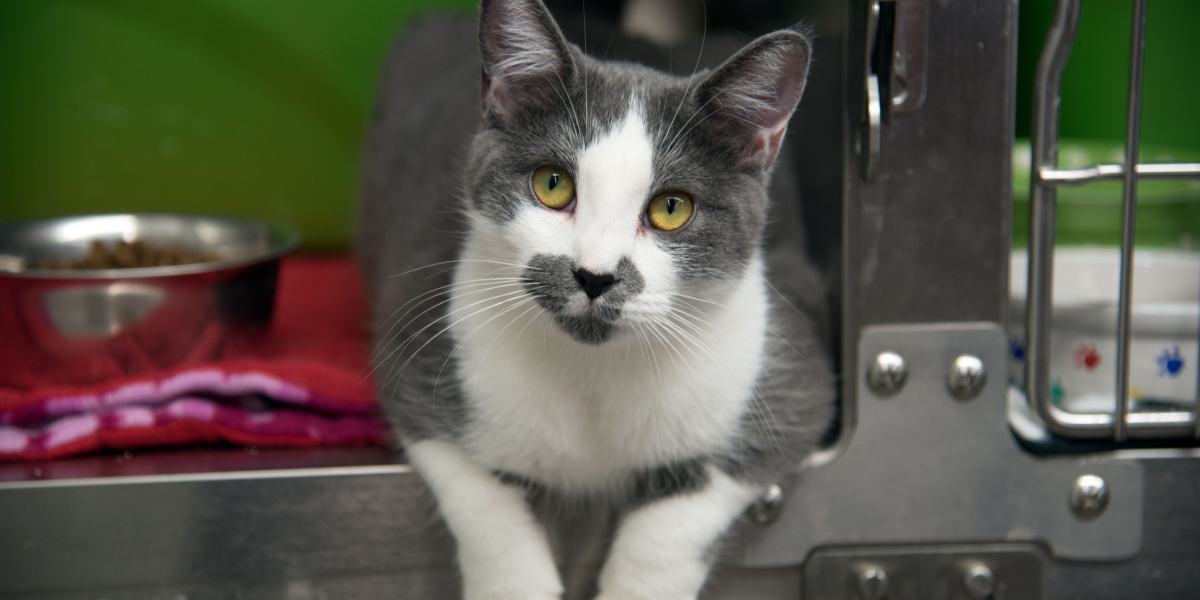
Taurine is an amino acid that is essential for normal heart function in cats. In this article you’ll learn what taurine is, why it’s essential and when it’s needed, what might happen without it, and some frequently asked questions.
Taurine for Cats Overview

About Taurine for Cats
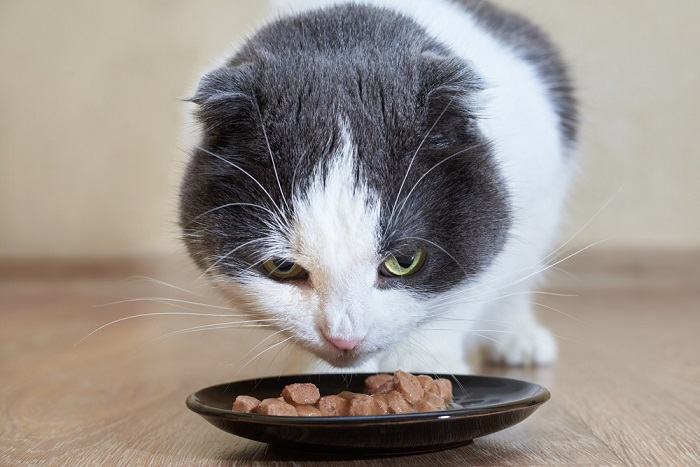
Taurine is a vital amino acid that cats must get from their diet.
Taurine is an amino acid, which is a small molecule that can combine with other amino acids to form proteins. Amino acids are generally termed “the building blocks of life,” as they and the proteins they form are needed for many different processes in the body.
There are nine essential amino acids, with many others considered non-essential. There are, however, some exceptions, with taurine in cats being one of them. Taurine should be considered an essential amino acid for cats as they are far more sensitive to deficiencies than other animals or people.
Taurine is found naturally in meat (particularly red meat), fish, and some dairy products. As obligate carnivores, cats have evolved to need taurine as part of their diet. Taurine is metabolized quickly by cats, requiring them to have it in their diet on a daily basis.
Taurine Deficiency in Cats
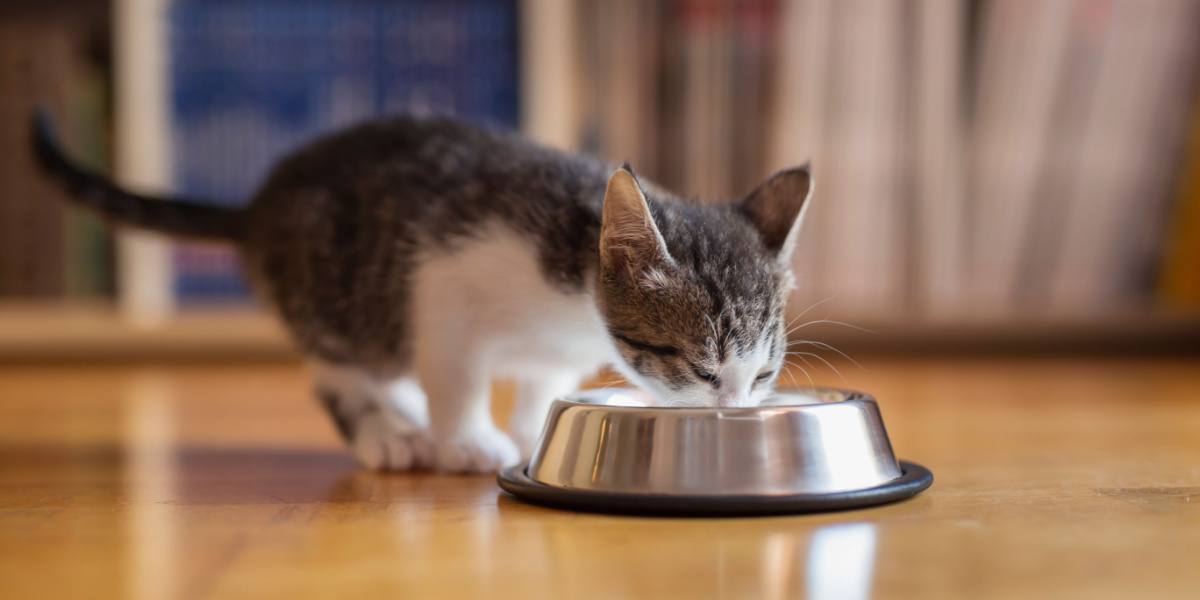
Taurine deficiency can cause serious diseases, including dilated cardiomyopathy and feline central retinal degeneration.
Although only a couple of health effects are seen from taurine deficiency, these health problems can be severe and even fatal.
Taurine deficiency can cause a heart disease called dilated cardiomyopathy (DCM). This is a disease where the heart chambers dilate, leading to overall heart enlargement, but the heart muscle itself actually becomes thinner and flaccid, leading to poor contraction.
Taurine deficiency has also been linked to feline central retinal degeneration (FCRD), as the amino acid is required for proper retinal health. This degeneration of the retina of the eye is irreversible and leads to blindness.
Taurine is required for bile acid conjugation in dogs and cats, a process required for digestion, so deficiency of taurine can also lead to digestive health concerns.
For breeding queens, taurine deficiency can lead to poor litter health with small litter size, lower birth weights, and kittens that are not strong or healthy.
History of Taurine in Cat Foods
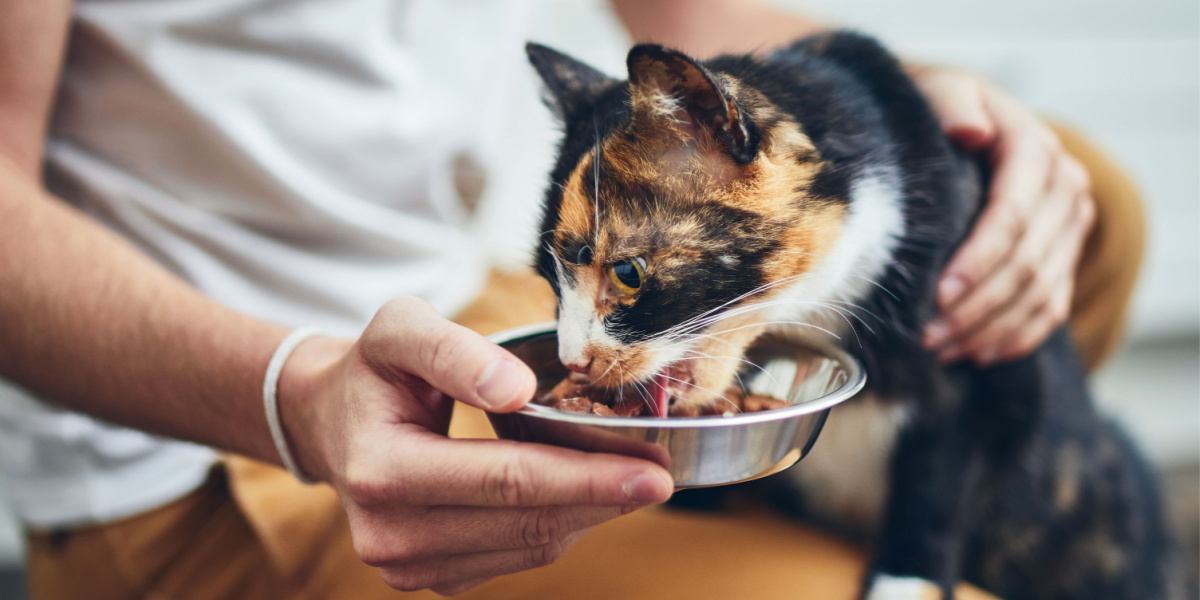
Taurine became a mandatory ingredient in commercial cat foods in the 1980s.
Before taurine was recognized to be so essential in cats, early commercial cat foods did not contain sufficient levels of taurine.
Prior to the 1980s, as cat ownership transitioned from allowing cats to go outside often to hunt and kill rodents to keeping cats mostly indoors, commercial diets for cats became more common. However, as this change in ownership occurred, DCM became more prevalent, as did retinal degeneration and poor digestive health.
At one point in time prior to the 1980s, DCM was actually the most common heart disease in cats, outpacing hypertrophic cardiomyopathy (HCM) which is currently the most recognized heart disease in cats.
In the 1980s, the link between taurine and DCM was made, as well as a deficiency of taurine in commercial diets’ ingredients being the cause for how prevalent DCM in cats was. Since taurine has been supplemented universally in cat food by pet food companies, DCM has rarely been seen since the mid to late 1980s.
DCM might still be seen in some cats, most often if the cat is being fed an inappropriate homemade diet or vegan diet that is deficient in proper meat sources, and therefore at risk of a taurine deficiency. Consulting with a veterinary nutritionist can help to ensure that a homemade cat food includes the appropriate vitamins, minerals, and other nutrients like taurine.
Also Read: Top 10 Things Your Vet Wishes You Knew
What Does Taurine Do for Cats?
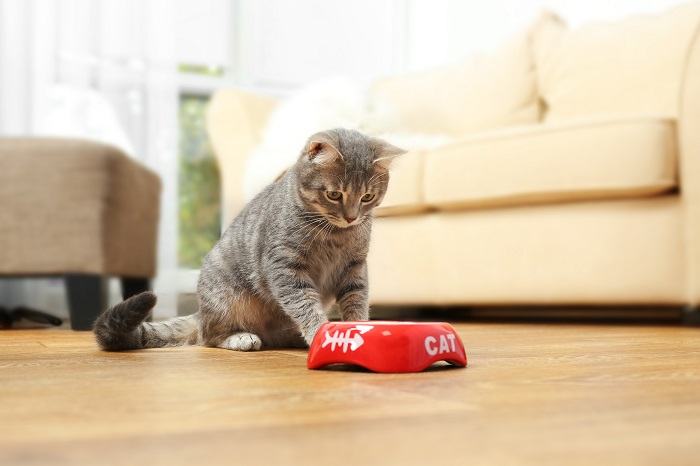
Cats should get taurine from their diet, but supplementation might be necessary for cats suffering from health conditions brought on by taurine deficiency.
Taurine is a nutrient that is naturally required for cats, so it is not considered either a supplement on its own, or a drug. However, our feline furry friends cannot synthesize taurine on their own and must obtain it in their diet, leading to the need for daily fresh dietary sources or supplementation.
In a cat with dilated cardiomyopathy (DCM) known to be due to taurine deficiency, if the disease is diagnosed early enough, supplementing with taurine can reverse the process affecting the heart and the cat can recover. Digestive issues likewise can be corrected and resolve. Any retinal degeneration that has occurred due to taurine deficiency cannot be reversed, but taurine supplementation can prevent further degeneration from occurring.
Cats with more severe DCM will require additional treatments and care, usually with a veterinary cardiology specialist, beyond just taurine supplementation.
Providing taurine in the diet or as a supplement only has the goal of meeting a cat’s basic nutritional needs and is not known to have any additional benefits if supplemented in higher amounts than what is required.
It is very important to only supplement additional taurine if directed to do so by your veterinarian or veterinary cardiologist in the case of a heart condition. Supplementing taurine should not be considered a replacement for proper diagnosis and treatment of a heart condition.
Because of its high threshold of safety, taurine supplementation has been investigated for treatment of other disease conditions such as epilepsy and liver disease, however no studies currently support its use for these other purposes.
Also Read: Digestive Enzymes For Cats: Everything You Need To Know
Side Effects of Taurine for Cats
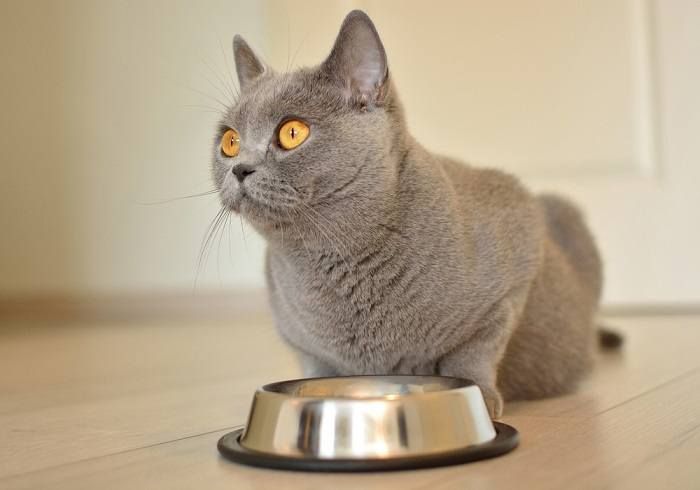
Digestive upset is one possible side effect when supplementing with a taurine oral liquid or powder.
As an amino acid the body needs, taurine is very well tolerated and no toxicities have been described. Taurine is not known to interact with any other drugs and toxicity risk is considered to be very low.
When supplementing with an oral liquid or powder product, digestive upset is possible. This effect can occur with any oral product that is introduced, but is typically mild in the case of taurine supplementation.
While considered uncommon, if you are ever concerned that your cat might have developed side effects while supplementing with taurine, make sure to contact your veterinarian, veterinary cardiologist, the ASPCA Animal Poison Control Center (1-888-426-4435), or Pet Poison Helpline (1-855-764-7661) immediately for further advice.
Also Read: Drug Poisoning In Cats: Causes, Symptoms, & Treatment
Taurine for Cats Dosage
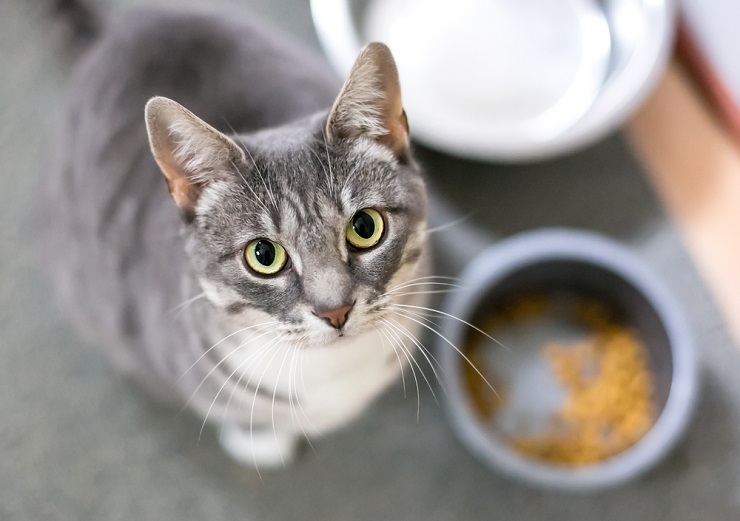
Consult with your veterinarian or veterinary cardiologist for the most appropriate dosing for your cat.
The most commonly recommended dosage of taurine for cats is 250 to 500 milligrams per cat every 12 hours. Taurine is noted to be very safe and inexpensive, leading to a wider dosage range.
If you know that your cat needs taurine dietary supplementation, especially for a diagnosed heart condition, it is always best to consult with your veterinarian or veterinary cardiologist for the most appropriate dosing for your cat’s condition.
While no taurine supplement carries FDA approval for cats, there are a couple of products that carry a label for use in cats. These include Formula V Taurine Tablets manufactured by PetAg that come in 250 milligram tablet size, and Dyna-Taurine oral liquid, manufactured by the Harlmen Corporation. The liquid comes in a 375 milligrams/4 milliliter concentration (roughly 93 to 94 milligrams/milliliter) equating to roughly 2.5 milliliters up to 5.0 milliliters daily dose per cat.
There are also many human-labeled taurine supplement products that have a variety of dosage sizes.
Also Read: The 8 Best Cat Vitamins And Supplements
Taurine for Cats: Final Thoughts
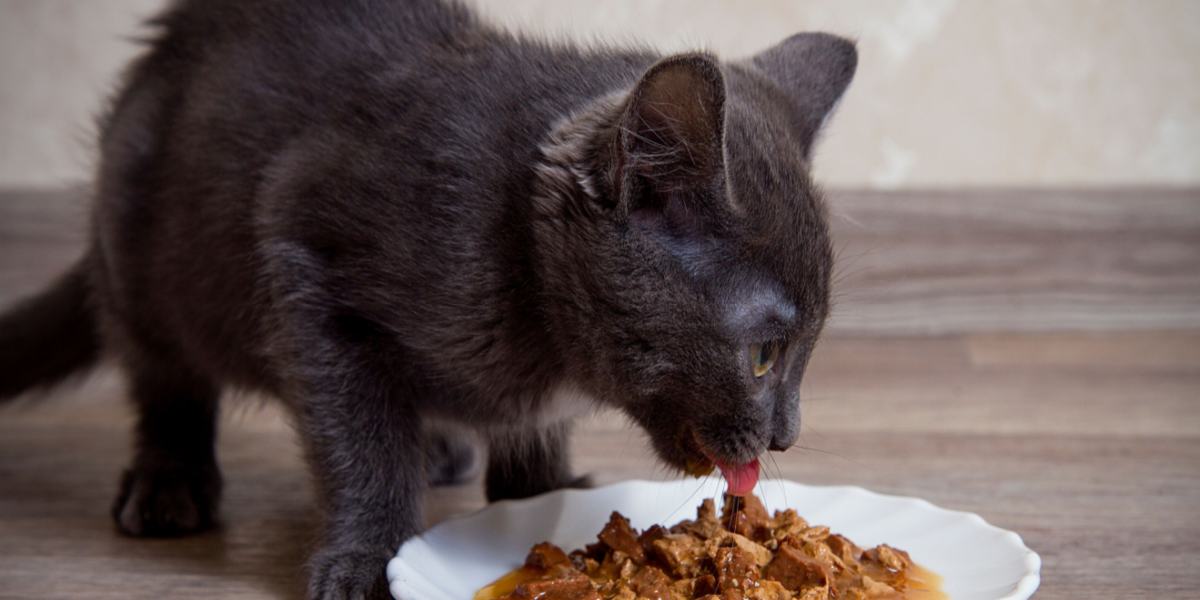
Cats eating a complete and balanced commercial cat food will receive enough taurine from their diet.
Taurine is an essential amino acid nutrient for cats that is necessary for proper heart health, vision, and digestion. Most cats will obtain their required amount of taurine from a properly balanced commercial diet as all companies after the mid 1980s are required to include taurine in cat foods.
In cases where taurine supplementation is needed, taurine is considered very safe to use though doses for specific conditions should be obtained through a cat’s attending veterinarian or veterinary cardiology specialist.
Drug Dosing Disclaimer: We are only able to provide doses for medications that are FDA approved for use in cats and only as the label guidelines dictate. For medications that are used off-label we can only provide guidelines and safety information for use. Safe and appropriate dosing for off-label medications can only be determined by a primary care veterinarian.
We encourage you to work with your veterinarian to determine if a particular medication is appropriate for your cat. Changing or adjusting a dose for your cat on your own without consulting with a veterinarian can carry risk. We do not encourage use of medications prescribed for human use in pets without first consulting with a primary care veterinarian.
Frequently Asked Questions
What does taurine do for a cat?
Taurine is an amino acid that is considered essential for cats. Deficiencies of taurine can lead to a heart condition called dilated cardiomyopathy (DCM), which was prevalent in cats prior to the 1980s before taurine began to be routinely included in commercial cat foods.
Taurine deficiency can also lead to loss of vision from retinal degeneration and poor digestive health.
When taurine is supplemented, it is usually to meet a cat’s nutritional requirement for health. While other uses for taurine have been investigated, there is no definitive evidence currently that supplementing it is beneficial for other health conditions.
What foods are high in taurine for cats?
Taurine can be found naturally in meat, fish, and dairy products. Red meat and dark meat of poultry have the highest amounts. Meat is considered the best natural source because many cats are lactose intolerant and cannot digest dairy well, and solely fish-based diets carry other potential health concerns.
Since the mid 1980s, all commercial cat foods are required to have taurine supplemented in appropriate amounts for normal health and function. Any commercial diet for cats meeting Association of American Feed Control Officials (AAFCO) feeding guidelines should contain adequate amounts of taurine.
Most taurine deficiencies nowadays occur more commonly when cats are fed homemade diets that do not include appropriate natural sources of taurine or are not supplemented properly.
What happens if a cat lacks taurine?
In cats deficient in taurine, three main health concerns can arise. The first is a specific heart disease called dilated cardiomyopathy (DCM), where the heart chambers become enlarged but the muscle becomes weaker and cannot contract. If untreated, a cat with DCM will eventually develop congestive heart failure and die from the disease.
Prior to the mid 1980s, DCM was the most prevalent heart disease diagnosed in cats due to taurine not being properly supplemented in commercial cat foods, as this nutritional link between taurine and DCM had not yet been established.
If supplemented properly with taurine earlier in the disease process, a cat with taurine-deficiency-related DCM can make a recovery.
Cats deficient in taurine may also develop degeneration of the retina, the part of the eye required for processing light and visual images. Degeneration cannot be reversed and leads to blindness.
Digestive issues are related to problems with conjugation of bile acids, which is needed for proper digestion, especially of fats, and for which taurine is required in cats (and dogs).
How much taurine do cats need daily?
From a nutritional standpoint, the National Research Council (NRC) guidelines stipulate that taurine should be included at a minimum of 0.08 grams of taurine per 1,000 kilocalories of metabolizable energy (ME), though the recommended amount is 0.1 grams. Most commercial cat foods will contain anywhere from 250 to 500 kilocalories of ME per cup of food, with cats requiring a varying amount of food depending on their weight.
The Association of American Feed Control Officials (AAFCO) requires taurine to be included at 0.1% in an extruded (dry) diet or 0.2% in a canned diet per kilogram of the diet. This is for both kittens and adults.
In a 2008 paper published in the Journal of Small Animal Practice entitled "The taurine requirement of the adult cat" by I.H. Berger and K.C. Barnett, the following quotation is found: “From the results of two earlier investigations it appeared that the minimum daily taurine requirement was between 35 and 56 mg for an adult cat. The results of the present study show that a taurine intake of about 10 mg/kg bodyweight/day is sufficient to maintain adult cats in adequate taurine status. This value is in agreement with the previous estimate and approximates to a taurine concentration of 500 mg/kg of dry matter in a commercial cat food.”
Based on this paper, an average 10-pound cat would need about 45 milligrams of taurine, but a 15-pound cat would need closer to 70 milligrams per day.
In cases where cats are deficient in taurine where higher amounts are needed and because taurine has a very high level of safety (and because understanding nutritional requirements expressed this way is technical and difficult), the amount of 250 milligrams per day per cat is most likely sufficient and safe to follow. However, if your cat has a diagnosed condition requiring taurine supplementation, it is always best to consult the veterinary professionals overseeing your cat’s care for the proper dosing, especially if a deficiency is present.




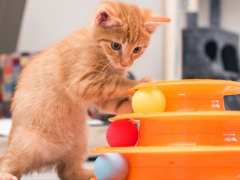
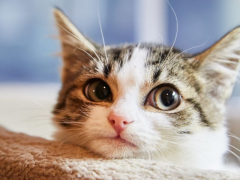
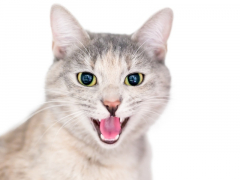
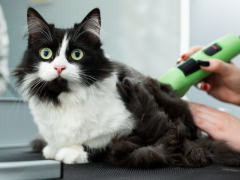
Where can you get Taurine liquid?
https://thrivingpets.com/products/taurine-liquid-16oz-bottle
Hello -I just found this website and it seems like a great source for sound cat info. I am curious about something though. Kinda an off the cuff not really a big thing type of thing. I see this is written by a vet and fact checked by an editor. Shouldn’t it be the other way around? LoL . Thanks and congratulations on your site here. 🙂
Hi Trish, thanks for your comment. We do our best with the content and I hope the content here is helpful for you and your cat(s). Initially, when the site was allaboutcats.com and we had a smaller team, an editor would just make sure all of the included references and links matched. This is one of those older articles. With new articles published over the last year and ongoing, every article written by a vet like myself is now reviewed by another vet prior to the editor doing a final review. All of our older articles are periodically going through expert review and updates to ensure you’re getting the most up to date and accurate content.
Good Morning and thanks so much for your reply. Good to know. Have a great morning. 🙂
If my cat gets too much taurine through vet recommended supplementation will this cause crystals in her urine? Thanks.
Hi Sandy,
This has not been documented or reported to my knowledge. Cystine crystals/stones, which are very rare, only occur due to a genetic abnormality in some cats that makes them unable to process the amino acid cystine. While it is an amino acid too, taurine has no relationship to this process. While high levels of meat protein may make the urine more acidic and could predispose to oxalate stones, I would say this rarely occurs in cats. Cats who get stones most often get struvite stones from alkaline urine (and perhaps a diet not rich enough in protein). Supplementing high levels of taurine alone would not contribute to that effect. In general, taurine supplementation should only take place where it is needed, but because it is a required amino acid in cats, significant medical health effects have not been reported.